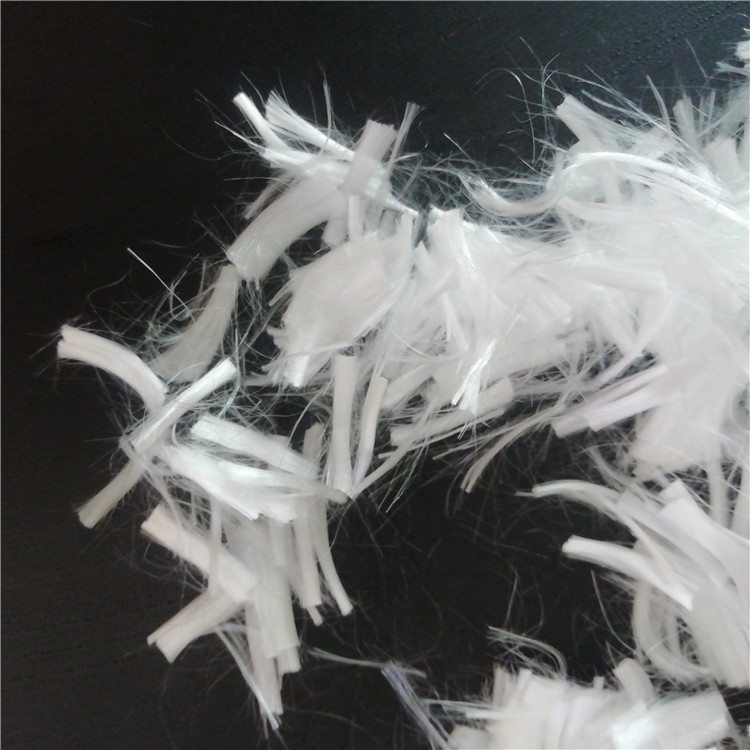Writer: admin Time:2025-01-27 10:03 Browse:
Compared with ordinary concrete, polypropylene PP fiber reinforced concrete has significantly improved its anti shrinkage deformation and anti permeability. In this paper, the influence of different fiber mixing amount on the conventional mechanical properties, anti shrinkage deformation and anti permeability of concrete is studied through the indoor test of field construction sampling. It is found that the addition of polypropylene fiber has little effect on the conventional mechanical properties of concrete, but has obvious effect on the anti shrinkage deformation and anti permeability of reinforced concrete.

Polypropylene fiber reinfroced concrete is made by mixing a certain amount of polypropylene (PP) fiber into ordinary concrete mixture. Its action mechanism [1-3] is: the plastic shrinkage energy of concrete mixed with fiber is dispersed to tens of millions of fiber monofilaments with high tensile strength and relatively low elastic modulus per cubic meter, so as to effectively enhance the toughness of concrete and inhibit the generation and development of micro cracks; at the same time, numerous fiber monofilaments form disorderly support brackets in the concrete The system can effectively prevent the segregation of aggregate, avoid the settlement of coarse and fine aggregate, reduce the water evolution on the concrete surface, and hinder the formation of settlement shrinkage cracks. Polypropylene fiber concrete has been used in engineering construction for more than 20 years. Compared with ordinary concrete, its anti crack, anti permeability, anti impact, anti-wear and flexibility are greatly improved. Therefore, it is widely used in railway, transportation, water conservancy and various underground projects, large sports venues, industrial and civil buildings and other projects.